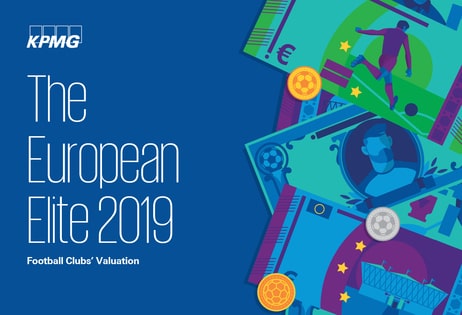David Conn- 1 February 2012
Any attempt to chart a new sanity for football's future from the erratic punts of January's transfer trading is fraught with lurking contradictions.
By lunchtime on Tuesday, the final day of dealing, there have been no breathtaking transfers concluded. The clear temptation in deciphering this year's deals, when the clubs have come nowhere close to the extravagances and last-day headline-making which boomed into a record £225m spent in 2011, is to conclude the Premier League is breathing the fresh air of restraint.
The reason for this prudence would then be obvious: financial fair play, the rules Uefa has introduced which require free-spending, loss-making clubs to move towards breaking even, or risk a menu of sanctions. Top clubs recording huge losses, such as Manchester City's £197m and Chelsea's £78m in their most recently published accounts, could find themselves most seriously banned from the Champions League if their plutocrat owners continue to bankroll overspending.
There is, without doubt, something in this. Premier League clubs, previously inclined to view financial fair play as a dastardly European, Michel Platini-provoked plot against England's money might, are realising it may be no bad thing to wrestle their losses, and therefore players' wages, down. Senior figures acknowledge that Uefa's rules are having an impact – and also providing clubs with the excuse to be firmer in resisting agents' and players' demands. More owners are seeing that it is not in their own interests to have an unrestrained market, because wages and transfer fees inflate in a spiral, reaching up to whichever owner is prepared to sanction the heaviest losses.
Yet there is a clear counter to the conclusion that the clubs are instantly moving towards "long-term viability and sustainability", as Uefa described the purpose of its rules last week. Two years ago, January 2010, was restrained, too, with Premier League clubs spending just £30m. Then, with City signing only Adam Johnson for £7m, after splurging £50m on four players for the then manager, Mark Hughes, the year before, a new realism was also hailed, with financial fair play about to shape the landscape. Then last year City spent £27m on Edin Dzeko, the striker Hughes's successor, Roberto Mancini, had long been eyeing, Aston Villa spent £18m signing Darren Bent, Roman Abramovich decided Chelsea had to have David Luiz for £26.5m and Liverpool paid £22.8m for Luis Suárez. Then on that final dizzying day, Abramovich sanctioned £50m to buy Fernando Torres from Liverpool, whose new US owners, Fenway Sports Group, immediately channelled £35m to Newcastle United for Andy Carroll, and the world concluded football had gone mad again.
Some in the Premier League argue that the results of that spree, in particular the continuing struggles of Torres and Carroll to justify even a fraction of that £85m, have produced this year's wariness. January, as Sir Alex Ferguson has always maintained, has long been considered a problematic window, with prices high because any club buying seems to be on the desperate side, and new players finding it a challenge to fit in when they arrive mid-season.
Abramovich is quieter this year after that 2011 splurge failed to deliver the oligarch any trophies, and Stamford Bridge instead saw another manager sacked. City have become noticeably more concerned about how their books will look when assessed by Uefa before the crucial 2014-15 season, when total losses of only £45m in 2012 and 2013 are permitted – if covered by an owner. The club's Abu Dhabi ownership have decided Mancini must try to win the league with only Sheikh Mansour's cumulative spending of £800m since his takeover three and a half years ago, despite the battle with the striking striker, Carlos Tevez. Manchester United, Arsenal and Liverpool are owned by American buyers looking to make money ultimately, not spend their own for the adrenaline of winning soccer trophies, and it is no surprise to see them holding back from impulse buying. John Henry, Fenway's principal owner, said last year they simply paid Newcastle the outsized price for Carroll relative to the outsized fee they received for Torres; despite spending so greatly, Liverpool came out around evens overall last year.
Below the biggest clubs, the Premier League has a stronger feeling of stability than for some time, with genuinely wealthy owners at most clubs, including Tottenham Hotspur, Newcastle United, Stoke City, Villa, Sunderland, Fulham and Wolverhampton Wanderers, trying to spend more sensibly and staunch the free spending. Everton have no spare money, as David Moyes has lamented, and, with parachute payments increased to £48m over four seasons, the clubs threatened with relegation are less panic-stricken.
Uefa, certainly, believes that its rules are already having the desired dampening effect on transfer excess and encouraging more forethought into the running of clubs' finances. In its audit of top clubs' accounts across Europe's 53 countries for 2009-10, Uefa found that transfer dealings were significantly down, accounting for most of the €400m increase in clubs' overall losses, to €1.6bn (£1.34m). Andrea Traverso, Uefa's head of licensing, explained this meant that medium-sized clubs are still accounting for the cost of players they signed before the new sobriety, but not recording windfalls from bigger clubs signing their players.
So Uefa's rules may already be framing a new, sober approach to player spending, but it would be a mistake to conclude this definitively from one quieter January. Restless ambition, rich men's impatience and the desperation of strugglers still thrash beneath the waters, calmer as they seem.{jcomments on}
 IN ENGLISH
IN ENGLISH 





































